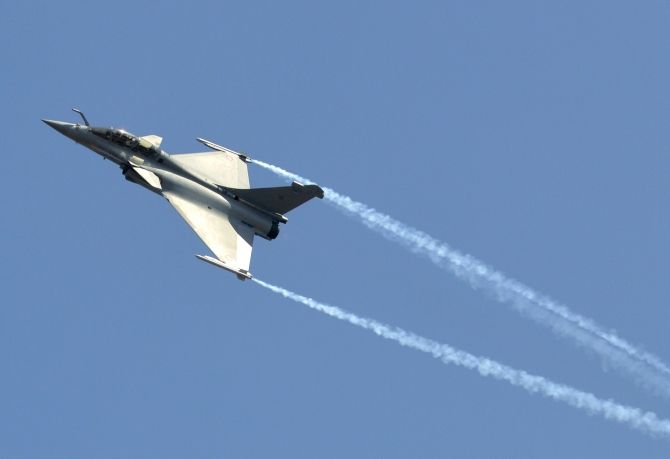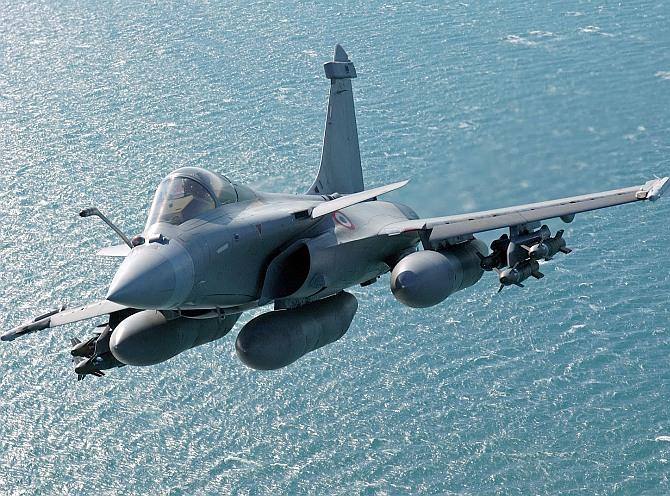 | « Back to article | Print this article |
Defence Minister Manohar Parrikar has voiced his concern at Dassault's reported reluctance to meet the terms of the IAF tender, which required the French company to guarantee the 108 fighters that HAL would build in India, after the first 18 were supplied fully-built in France.

Parrikar has fired another warning shot across the bows of French fighter manufacturer, Dassault, which has been negotiating for three years with the ministry of defence to sell the Indian Air Force 126 Rafale fighters. A fortnight after declaring that the IAF could make do with additional Sukhoi-30MKI fighters -- which HAL builds in Nashik -- in case "complications" in the negotiations were not resolved, Parrikar has gone further in outlining how the IAF could function were it decided not to procure the Rafale.
Speaking to Headlines Today, on Monday, Parrikar said the Su-30MKI offered a viable alternative, especially given that Hindustan Aeronautics Ltd was upgrading and overhauling the fighter and equipping it with state-of-the-art electronic warfare systems.
Said Parrikar, "Sukhoi-30 choice is always there. What I mean to say is: upgrade the Sukhoi-30, make it more capable." Dismissing concerns about the IAF's falling fighter numbers, Parrikar said the IAF could put more fighters into the sky by improving the serviceability rate of its current fleet of 35 squadrons. 
Business Standard has earlier reported (October 23, 2014 Govt takes note of Su-30MKI's poor 'serviceability) that barely half of the IAF's premier Russian fighters are available for combat missions at any given time. Since then, due to the HAL's efforts, that has risen to 58 per cent, still below the global norm of 80-85 per cent. Parrikar made it clear that the IAF needed to look at the issue of fighter costs. He said, "It is not always… go and purchase it.
A cost effective purchase is also important." Declining to reveal the actual cost of buying the Rafale, Parrikar said, "Whether it is Rs 40,000 crore, or Rs 50,000 crore or Rs 1 lakh-crore, we are speaking about 50 per cent of the capital budget of the defence services."
Parrikar also voiced his concern at Dassault's reported reluctance to meet the terms of the IAF tender, which required the French company to guarantee the 108 fighters that HAL would build in India, after the first 18 were supplied fully-built in France. The defence minister said, "I have told (Dassault) to send a person to work out the (differences). You have to be clear that, irrespective of anything, the (tender's) terms have to be met. They cannot be diluted."

Parrikar laid down a deadline of March 2015 for his ministry to revamp five important policies -- permitting foreign companies to have agents in India; the issue of blacklisting companies for wrongdoing; defining "Make in India" policy; bringing micro, small and medium enterprises into defence production; and a clear offsets policy.
Interestingly, Parrikar said he was considering creating a list of defence products that would no longer be imported.
He said, "Maybe some items can be brought under that, where we have already developed a certain import substitution (ability). Some items may be brought under that by 2015."